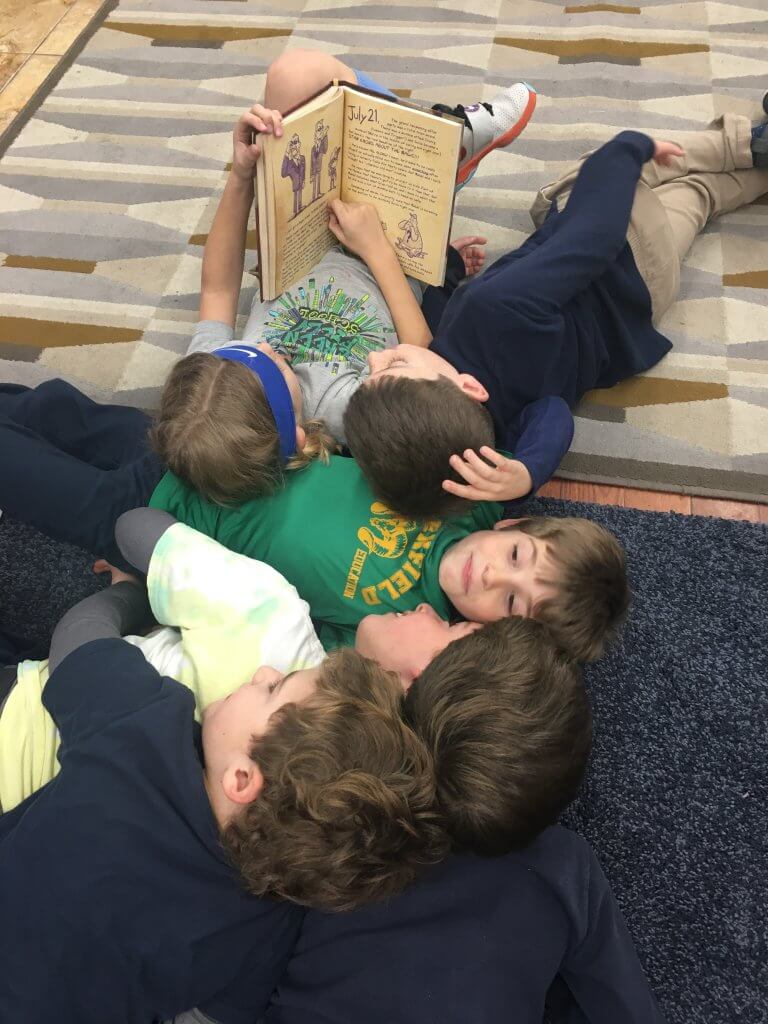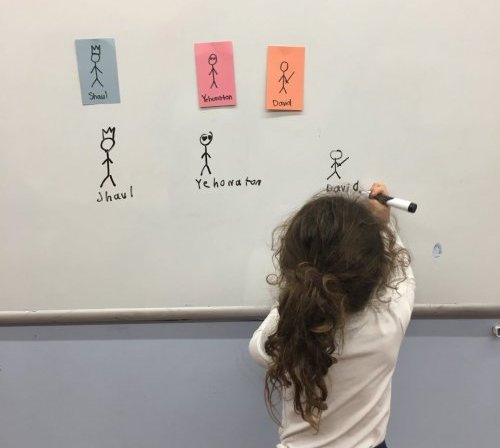
Our story this week zooms in on the unique relationship between Shaul’s son Yehonatan and David. They meet after David defeats Goliath, and the text tells us that Yehonatan’s soul becomes bound up with David’s soul. Yehonatan loves David like himself. The two of them make a brit (two-way promise) together. Yehonatan gifts his cloak, sword, belt, and bow to David, which was a pretty big deal for a soldier and an archer to do. (I Shmuel 18:1)
A commentary suggests that there are two basic kinds of love, one where the love is dependent on something and one where it’s not. With the first kind of love, if the thing that it depends on goes away (ex: youth, good looks, money, etc.), then the love goes away too. But unconditional love can last forever. The commentary sites the relationship between David and Yehonatan as a good example of that unconditional love.
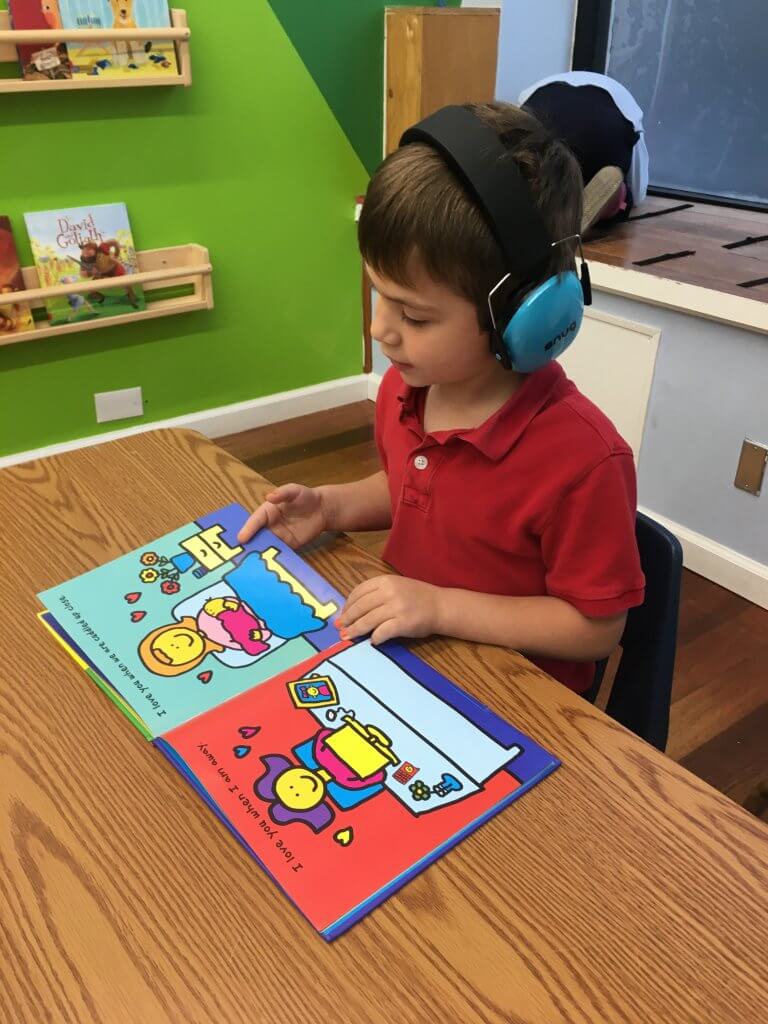
We reflected a little bit on unconditional love. Who in our lives loves us like that? Who do we love like that? What makes it difficult to love someone that way? What makes it easier? Why is unconditional love important? I gave a silly example suggesting that I might only love one of the Shorashim (first grade) students as long as he was sitting in a chair. As soon as the student stood up, under this scenario, I wouldn’t love him anymore. But if the love were unconditional, then I would love that kid sitting down, standing up, laughing, crying, sulking, participating, disrupting, etc.
As we explored unconditional love, we turned to our relationships with our family and friends or chosen family. For Yehonatan, the dynamic between family and chosen family is a tough one. He loves and respects Shaul as his father and his king, but he also feels this incredible bond with David. As Shaul’s mental state deteriorates and he starts to encourage Yehonatan to help him get rid of David, Yehonatan has to navigate some difficult waters of loyalty.
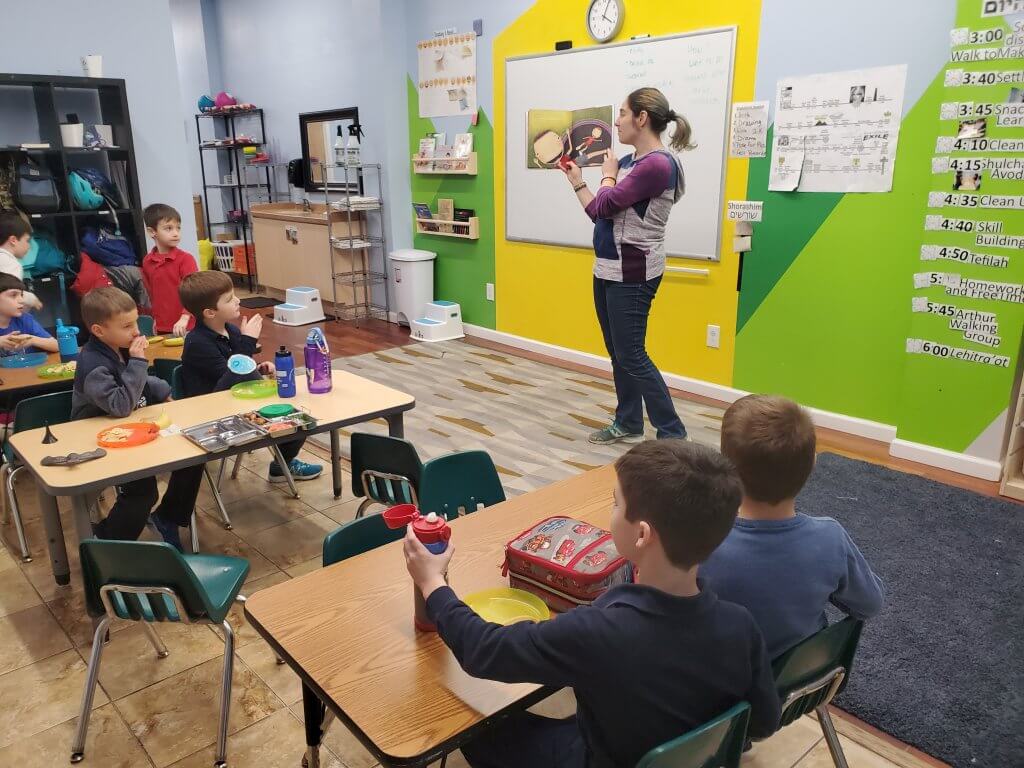
We spent some time unpacking what it means for someone to be family. Our families each look a little different:
- Some of us live in just one house; some of us live in at least two houses.
- Some of us live with two parents; some of us live with different numbers of parents.
- Some of us live close enough to grandparents that it’s like they live with us.
- Some of us have siblings; some of us don’t.
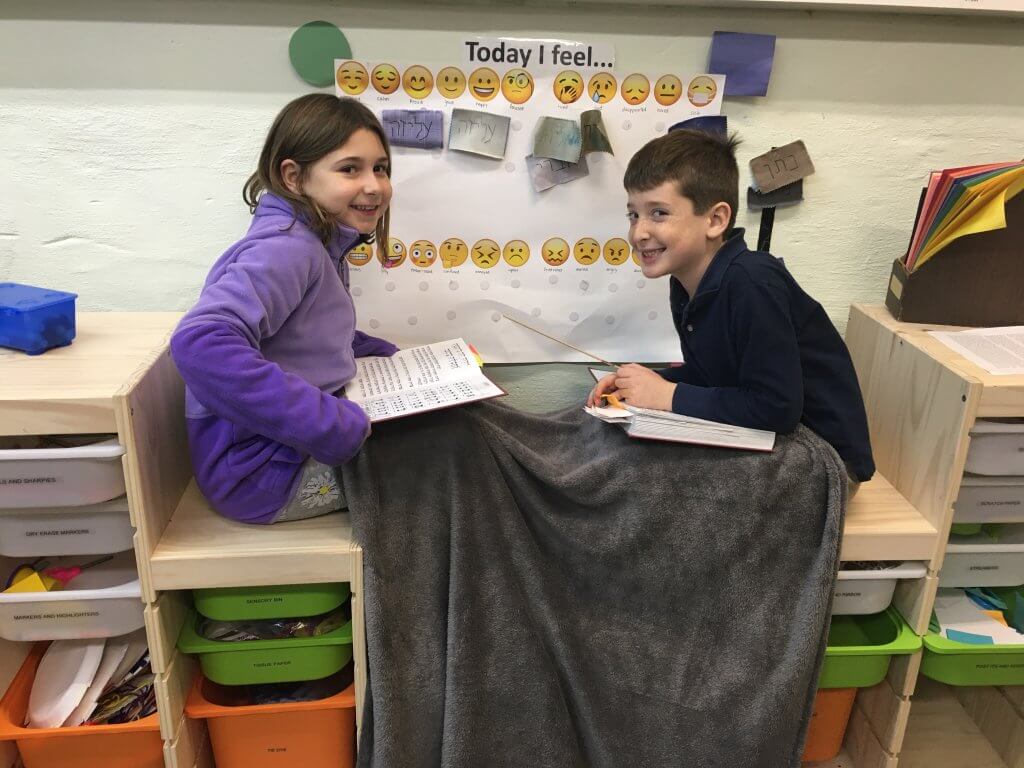
We noticed some overlap between the roles and relationships we have with folks in our families and chosen families, as well as sometimes some tension.
- Some of us have friends that we call part of our family (ex: a friend we call our “brother”, a friend of a parent we call an “aunt”).
- Some of us have friends that we spend time with as though they were family (ex: eating dinner together every week).
- I would rather hang out with my brother because I love him more than I love my friends.
- There are different kinds of love for friends and family. I can kiss my family but I can’t kiss my friends.
- Sometimes I would rather be with my friends because they have a trampoline in their backyard.
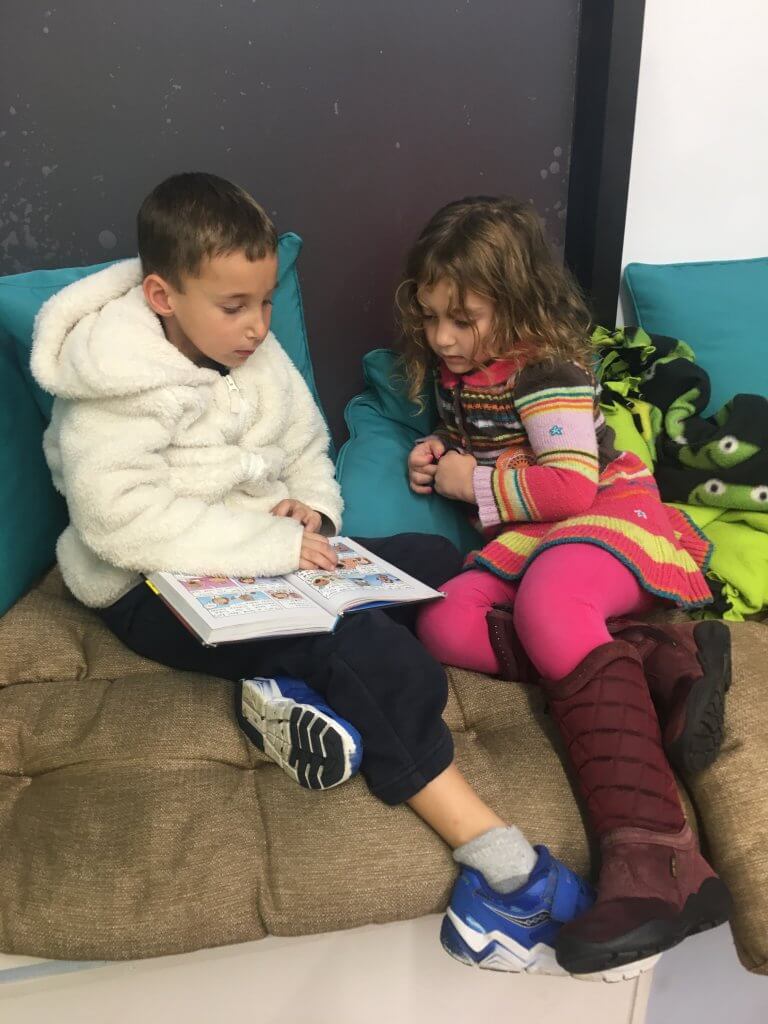
Moving into Winter Break, we’re noticing that by this point in the school year, all of us here at Makom Community are beginning to feel a little bit more like family. Look below at this loving pile of cuddly humans! Some of these kiddos have been at Makom Community for years, some of them only for months. We’re grateful they all welcome each other into their Makom Community chosen family. Wishing you all a warm and loving holiday season from our family to yours!
